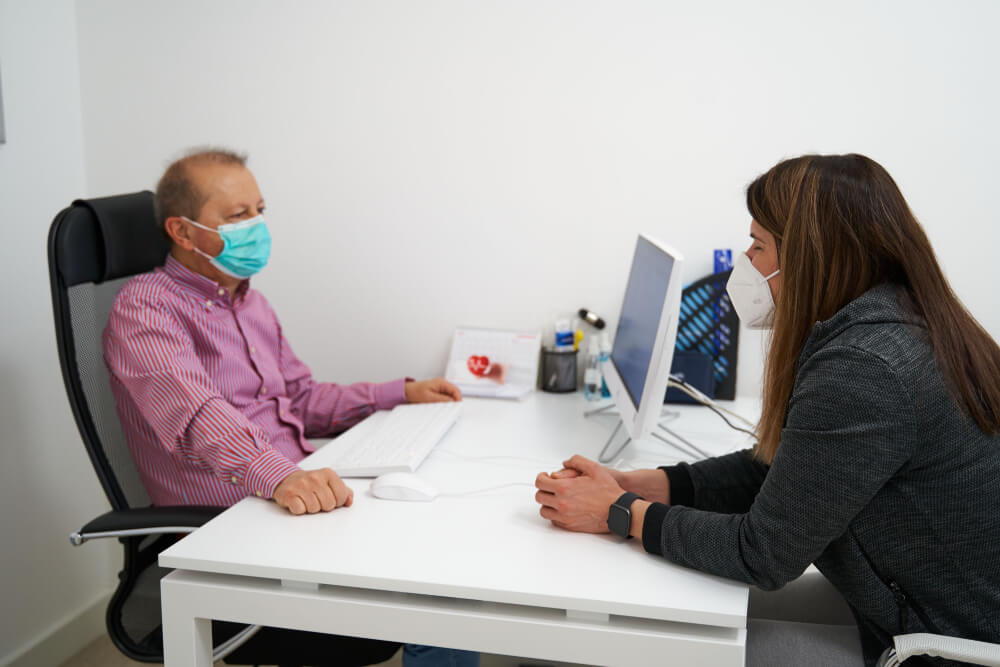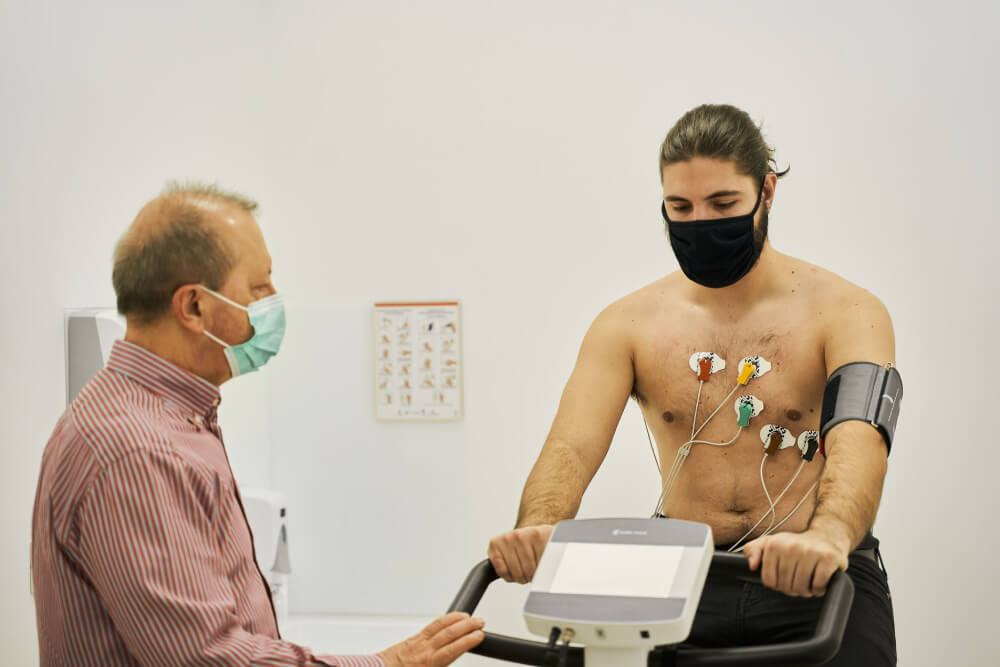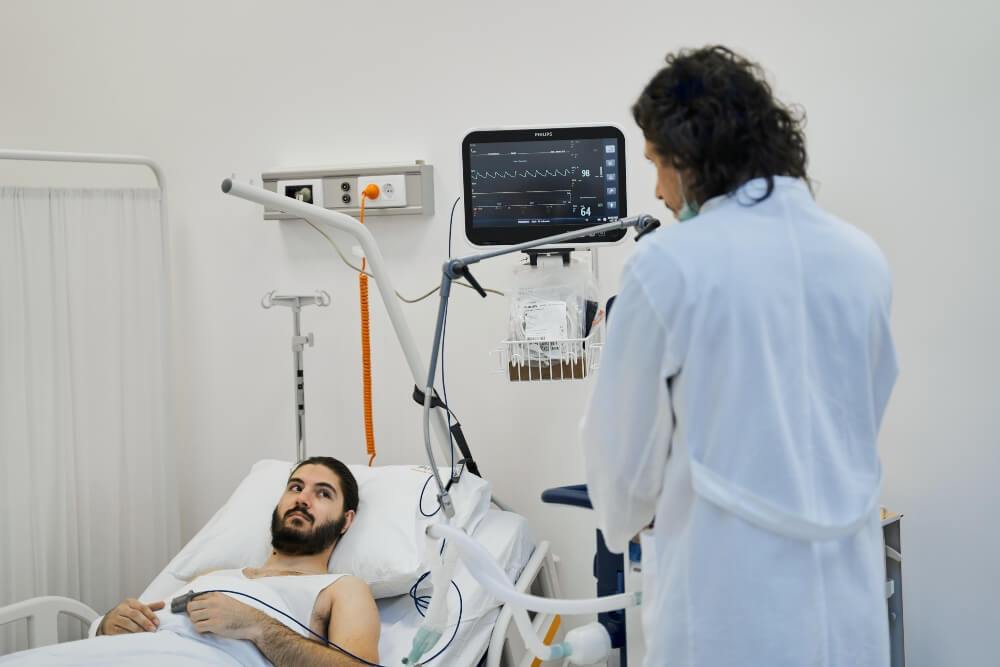In one of the previous blogs, we have already wrote about the consequences of the Corona virus on the body and we explained what the phenomenon of ‘prolonged Covid’ means and how to recognize it based on the symptoms we feel immediately after the illness. During that period, many patients focus exclusively on the state of the lungs (read how looks like the lung imaging after Covid-19 ), which for many of them (especially for those with a moderately severe and very severe clinical picture) should not be the only priority. We emphasize that other organs, in addition to the lungs, can be equally affected by the entry of the Corona virus into the body, so it is necessary to perform a series of preventive examinations, the most important of which are: laboratory tests, heart examination and imaging of the lungs with a CT scanner.
A large number of people return to their daily activities very quickly after being infected with the Covid-19 virus and expose their still insufficiently recovered organism to renewed effort. Going to work, returning to the daily stressful pace of life and work, as well as hard training to get back in shape as quickly as possible, can leave unfavorable consequences on the entire body, especially on the heart. Therefore, before returning to work, daily training and normal pace, be sure to have a complete heart examination.
Now let’s take a closer look at the effects of Covid-19 on the heart and answer some of the most common questions that patients ask us.
Consequences on the cardiovascular system that occur after infection with the Covid-19 virus
Not only that Covid-19 can leave numerous harmful effects on our body, but we ourselves can contribute to it after a long illness, if we do not adjust our activities and the pace of returning to everyday life. We should return to demanding training and physical activities slowly, and we should especially take care of this in the first days after leaving self-isolation.
Research shows that even a quarter of hospitalized patients had some kind of problem with the cardiovascular system, during and after leaving the hospital. Corona especially brings a strong effect of devastation to blood vessels, so patients often complain of ‘pressure in the chest’, then ‘piercing in the chest’, palpitations and skipping of the heart, increased blood pressure, headaches and dizziness, as well as forgetfulness, but also tingling of the hands and leg.
In addition to these problems, in patients during a cardiology examination, it can be established that inflammation of the heart muscle, also known as myocarditis, has occurred. And if the symptoms of inflammation of the heart muscle (arrhythmias, chest pain, fatigue and shortness of breath) are ignored and increased physical activity continues, heart failure, heart attack and, in some cases, a fatal outcome may occur. Myocarditis brings with it an increased risk of blood clots, which can also cause both heart attack and stroke. The Corona virus is known for the fact that it itself affects the formation of blood clots and blockage of blood vessels, which is why you should be very careful and schedule an examination by a cardiologist at Pulse Cardiology Center.
Who should schedule a cardiology examination at Pulse Cardiology Center?
Patients who had a milder clinical picture (which means a temperature that lasted a day or two, without changes in the lungs and greater general exhaustion) do not need to come for additional examinations, before returning to their daily activities. However, if they still felt fatigue while climbing, possibly palpitations or an irregular rhythm, they can receive a recommendation for a cardiology examination in consultation with their general practitioner. If you are wondering where to find the best cardiologist in Belgrade, Pulse Cardiology Hospital may be the best choice for you, because it is staffed by a team of experts with many years of experience.

For patients with a moderate or severe clinical picture (which was accompanied by bilateral pneumonia, regardless of whether the patient was hospitalized or treated at home) who, even after a few weeks of the illness, quickly tire, have difficulty breathing, they feel chest pain, arrhythmias and tachycardia every day – it is recommended that they see a cardiologist in order to determine whether there is any damage, whether additional diagnostics and possible therapy are needed.
The examination is also mandatory for all chronic patients, who already had problems with the cardiovascular system even before the Corona virus, whether they are diabetics, hypertensives, etc.
What to do and how to behave after being infected with Corona virus?
This is a question we often get from our patients, as many seem to be either anxious to get back to their daily activities, or forced to do so by work. Whatever the cause, we advise those who had a milder clinical picture and spent the Corona infection at home to be careful and not strain their body for at least another three to four weeks. It is important that they carefully listen to their body and that if they notice arrhythmias, heart palpitations or similar symptoms, they should schedule an examination at the Pulse cardiology center.
When it comes to patients who were hospitalized, due to a medium or severe condition (unilateral or bilateral pneumonia) caused by the Corona virus, in that case recovery may take a little longer and should certainly include as much rest as possible, preventive examinations by cardiologist, pulmonologist and as needed by other specialists. This gentle regimen of physical activity should last up to three months after leaving the hospital and should include walking, but without much strain.
Faster recovery after the Corona virus
A diet rich in vitamins can also contribute to a faster recovery, so the Mediterranean diet is ideal in this period, because it is composed of healthy foods and will contribute to restoring energy levels and boosting immunity. Also, stress should be avoided as much as possible, because it has a negative effect on the whole organism, especially on immunity.
Your cardiologist in Block A is waiting for you, make an appointment at the best cardiology hospital in Belgrade
If you want to schedule a total heart examination, or perhaps you need a 24-hour blood pressure holter, as well as all other services that include cardiology post-Covid examinations, do not hesitate to contact us at +381 11 7555 000 or at +381 66 6 555,000. We are here for you every working day from 8 a.m. to 8 p.m. and on Saturdays from 8 a.m. to 3 p.m.





